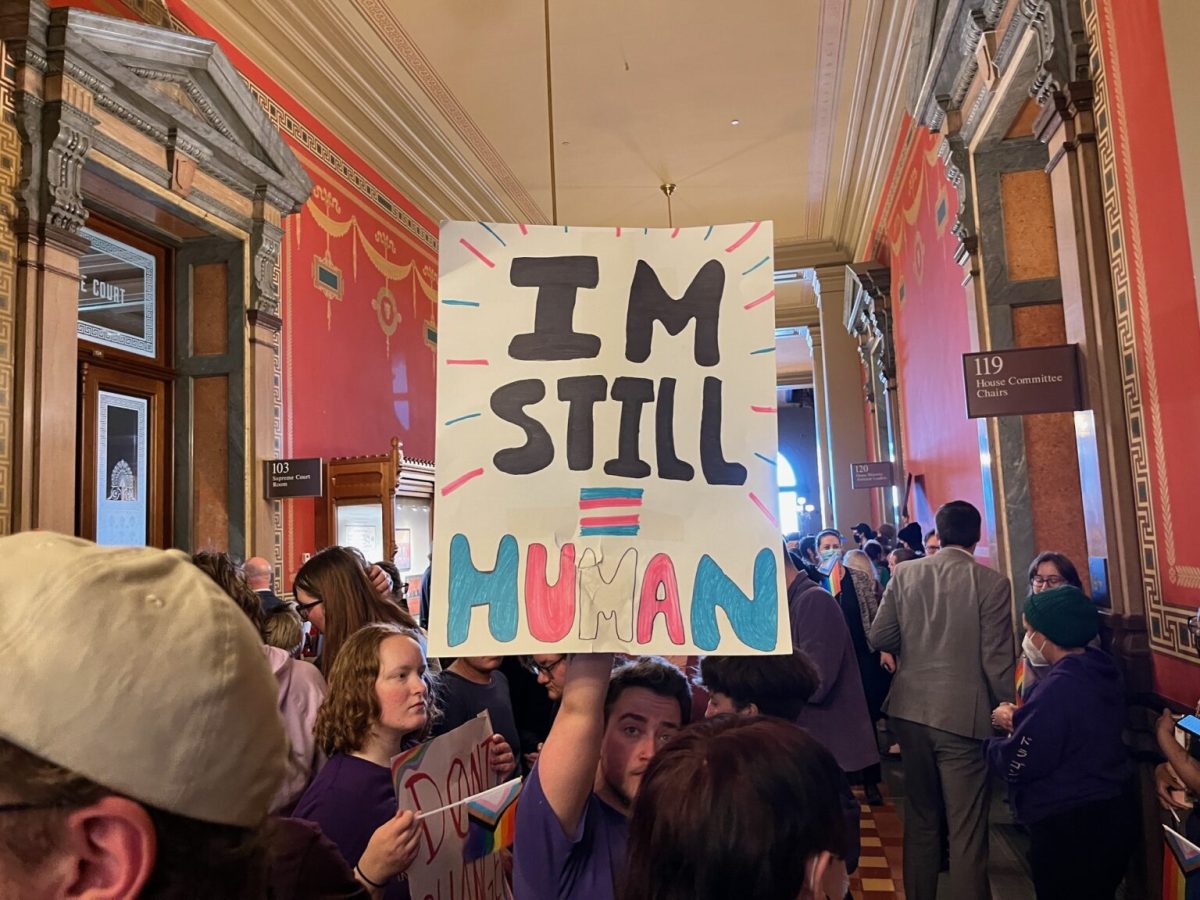Texting and driving: how the habit changed one Simpson student’s life
September 17, 2015
On an Iowa backroad in 2012, 17-year-old Maria Claussen experienced first-hand the consequences of texting and driving. One minute she looked down to text her friend. Seconds later, a 42-year-old bicyclist was paralyzed from the chest down.
It was sleeting and pitch-black out at 7 p.m. in Alleman, Iowa, when Claussen left a canceled football game to meet her friends. She planned to send a text to one of her friends as she drove between 50 to 60 mph on a back road to avoid traffic.
Claussen’s car struck the bicyclist, throwing him through the air. She searched for him, recalling later, “I find him and he’s just laying on the ground, motionless and lifeless, and it looks like he’s dead so I freak out and I call 911.”
The ambulance and police officers arrived about 10 minutes after the accident, taking the man to the ICU where doctors discovered he was paralyzed. Police interviewed Claussen that night asking her if she was texting while driving and she regretfully replied, “Yes.”
Claussen broke Iowa’s texting law that states, “A person shall not use a hand-held electronic communication device to write, send or read a text message while driving a motor vehicle unless the motor vehicle is at a complete stop off the traveled portion of the roadway.”
Since the accident, Claussen has recognized that texting and driving is a common issue, especially among young people. According to the Department of Transportation in 2012, there were 715 total crashes caused by drivers distracted by their phone or some other device. 324 people were injured in those crashes.
In the last 4 years, the number of crashes has increased every year by 11 percent because of distracted drivers.
According to the Iowa Strategic Highway Safety Plan, “20 percent of severe injuries resulting from inattentive/distracted driving crashes were between the ages of 15 and 20.”
Cell phone use was a contributing factor.
Her decision to text while driving has caused life-changing consequences she knows she can never take back.
Police interviewed Claussen later that week and issued two tickets worth $200 each. After the police tried to double her fines, she went to court a month later. With the assistance of her lawyer, who fought to lower the tickets, Claussen pleaded not guilty and paid $400.
“They had such a hard time trying to ticket me because it wasn’t something out of malice,” Claussen said. “They knew that I felt horribly about it and they knew that I was going to have to deal with a lot of things.”
Claussen had a $1 million umbrella on her insurance, which covered medical expenses for the man she paralyzed. Her insurance company wouldn’t pay unless he and his wife signed waivers saying they wouldn’t sue Claussen. The waivers were signed and the insurance covered the expenses.
A few months later, on Friday, Jan. 18, the same man committed suicide. Claussen was shocked when she heard about his death, and couldn’t help but feel guilty.
“I felt like if I hadn’t paralyzed this man that he wouldn’t have wanted to take his own life,” she said.
The Salt Company, the college ministry of New Heights Church in Indianola, helped Claussen recover spiritually and emotionally from the accident. Claussen also recovered through her support system, including her parents, friends, coach and youth pastor.
“It’s more scars now than open wounds,” Claussen said. “It’s definitely something that I’m going to have to deal with for the rest of my life.”
Even after the accident, Claussen admitted to texting while driving. She uses the Voice to Text application, which allows a person to send and receive text messages by voice. Claussen is aware that using this application is still a distraction, but that it doesn’t require as much effort as sending a message by hand.
“I don’t really have to look at my phone to do it,” she said. “I try to be safe about it, but it’s still a distraction.”
Claussen continues to share her story in hopes that those who text while driving will take precautions and understand how dangerous it can be.
“It’s not worth it,” Claussen said. “It doesn’t matter how important it may seem to get out whatever it is you’re trying to text at that moment because that one decision can change your life or it can change somebody else’s life forever.”





